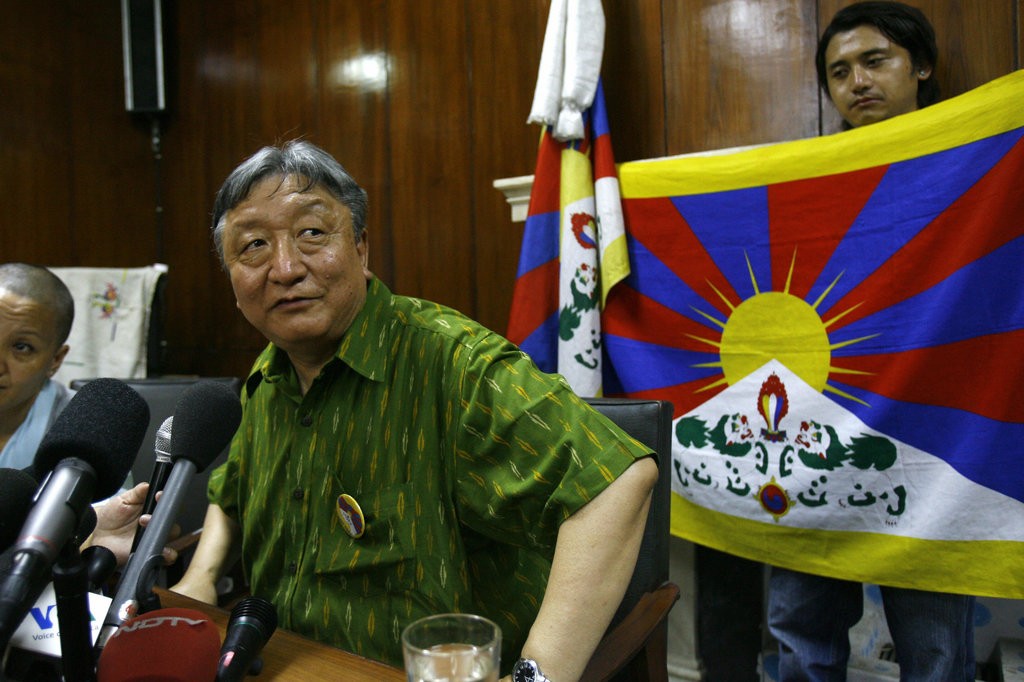Tibetet Segítő Társaság Sambhala Tibet Központ
Tibet Support Association Sambhala Tibet Center
székhely / telephely H-Budapest I. Attila út 123..
(00-36) 70 431 9343 (00-36)70 944 0260 (06-1)782 7721
sambhala@tibet.hu www.tibet.hu tibetpress.info
Facebook/Sambhala Tibet Központ Facebook/Tibett Segítő Társaság
MagnetBank/ 16200010-00110240
IBAN/HU94 16200010 00110240 00000000 SWIFT/HBWEHUHB
(1%) adószám/ 18061347-1-41
nyitva tartás/hétköznap 12.00-20.00 hétvégén előadás függő
» Retro» Tibeti művészet» Interjú» Levelek» Tibet Press» Tibet Press English» Dharma Press» Human Rights» Világ» Kína» Magyar» Ujgur» Belső-Mongólia » KőrösiCsoma» Élettér» Határozatok» Nyilatkozatok» tibeti művészet» lapszemle.hu» thetibetpost.com» eastinfo.hu» rangzen.net» ChoegyalTenzin» tibet.net» phayul.com» DalaiLama.com» vilaghelyzete.blogspot.com» Videók» Linkek» TibetiHírek» Szerkesztőség
Lodi Gyari, a Dalai Láma legfőbb megbízottja, 69 éves korában meghalt
2018. november 2./The New York Times/TibetPress
Jelenleg csak angolul olvasható. Magyarul később.
eredeti cikk
By Austin Ramzy
Lodi Gyaltsen Gyari, who as a top envoy for the Dalai Lama, the exiled Tibetan spiritual leader, helped promote their homeland’s cause abroad and negotiated unsuccessfully for decades with Chinese officials, died on Monday in San Francisco. He was 69.
The cause was liver cancer, according to the International Campaign for Tibet, a Washington-based advocacy group he once led.
Mr. Gyari was the lead negotiator in nine rounds of talks with Chinese officials over the status of Tibet, the vast region that the People’s Liberation Army invaded in 1951 and that the Dalai Lama fled, for India, eight years later.
During the talks, which began in 2002, Mr. Gyari and his team extended a proposal from the Dalai Lama that Tibet and traditionally Tibetan areas of nearby provinces be given autonomy under Chinese rule. Nominally, Tibet is already autonomous, but in fact the region is in the grip of China. Tibetans have long worried about the deterioration of their language, culture and religion under Beijing’s rule.
China rejected the Dalai Lama’s proposal in 2008, saying his call for a “Middle Way,” which would leave Tibet neither fully independent nor completely under China’s control, was really a bid for secession.
In 2010, after the final round of talks, Mr. Gyari lamented that Chinese officials no longer had the “courageous” spirit of past leaders like Deng Xiaoping and Hu Yaobang, who, he said, were willing to consider significant change in China’s relations with Tibet.
“It is disheartening to see just how far China’s leaders have drifted from the early days of bold reform,” he wrote.
Two years later, Mr. Gyari and his fellow Tibetan negotiator Kelsang Gyaltsen said they were stepping aside because China had not been responsive to their proposals and because of the deteriorating situation in Tibet, where dozens of people protesting Beijing’s rule had set themselves on fire.
Mr. Gyari, who was a longtime resident of Washington, had more success promoting the cause of Tibet in the United States. The Tibetan government in exile, which is based in the northern Indian town of Dharamsala, credited him with Congress’s passage of the Tibet Policy Act in 2002. The law guides American policy over Tibet, encouraging dialogue between exiled Tibetans and the Chinese authorities with the goal of protecting Tibetans’ distinct identity.
Lodi Gyaltsen Gyari was born in 1949 in Nyarong, a Tibetan district that is now in western Sichuan Province. He was recognized as a rinpoche, or reincarnated lama, and educated as a child in the traditional monastic system of Tibetan Buddhism.
He became active in the cause of Tibetan independence as a young man in exile in India, and at one point was recruited to work as a translator for a C.I.A. effort to train Tibetan fighters. But he went into journalism instead, editing a Tibetan-language newspaper and then an English-language publication that became The Tibetan Review.
In 1970 he co-founded the Tibetan Youth Congress, which is now the largest Tibetan exile organization seeking independence from China. But his own position became more moderate, and as he held increasingly prominent positions within the exile government, including speaker of Parliament and cabinet member, he became a leading advocate of the Dalai Lama’s Middle Way.
Mr. Gyari traveled to China in 1982 and 1984 as part of Tibetan delegations that held exploratory talks with officials. He later said that the Chinese government’s deadly crackdown on the Tiananmen Square protests in 1989 and the collapse of the Soviet Union in 1991 had frightened the Chinese leadership, inhibiting political liberalization and the possibility of a changed relationship with Tibet.
In a 2014 talk, Mr. Gyari said he still felt some optimism despite decades of unsuccessful negotiations with the Chinese. Xi Zhongxun, the father of China’s current leader, Xi Jinping, had met with the Dalai Lama in the 1950s, and the Tibetan leader had given him a luxury watch that he showed to Mr. Gyari during their meeting in 1982. Mr. Gyari hoped that Xi Jinping had inherited some of his father’s affinity for Tibet.
“Those 30 years have been challenging and disappointing — disappointing because I left the responsibility without really making any major breakthrough,” he said. “However, those 30 years of dealing with the Chinese government in some ways have deepened my heart and given me some hope.”
